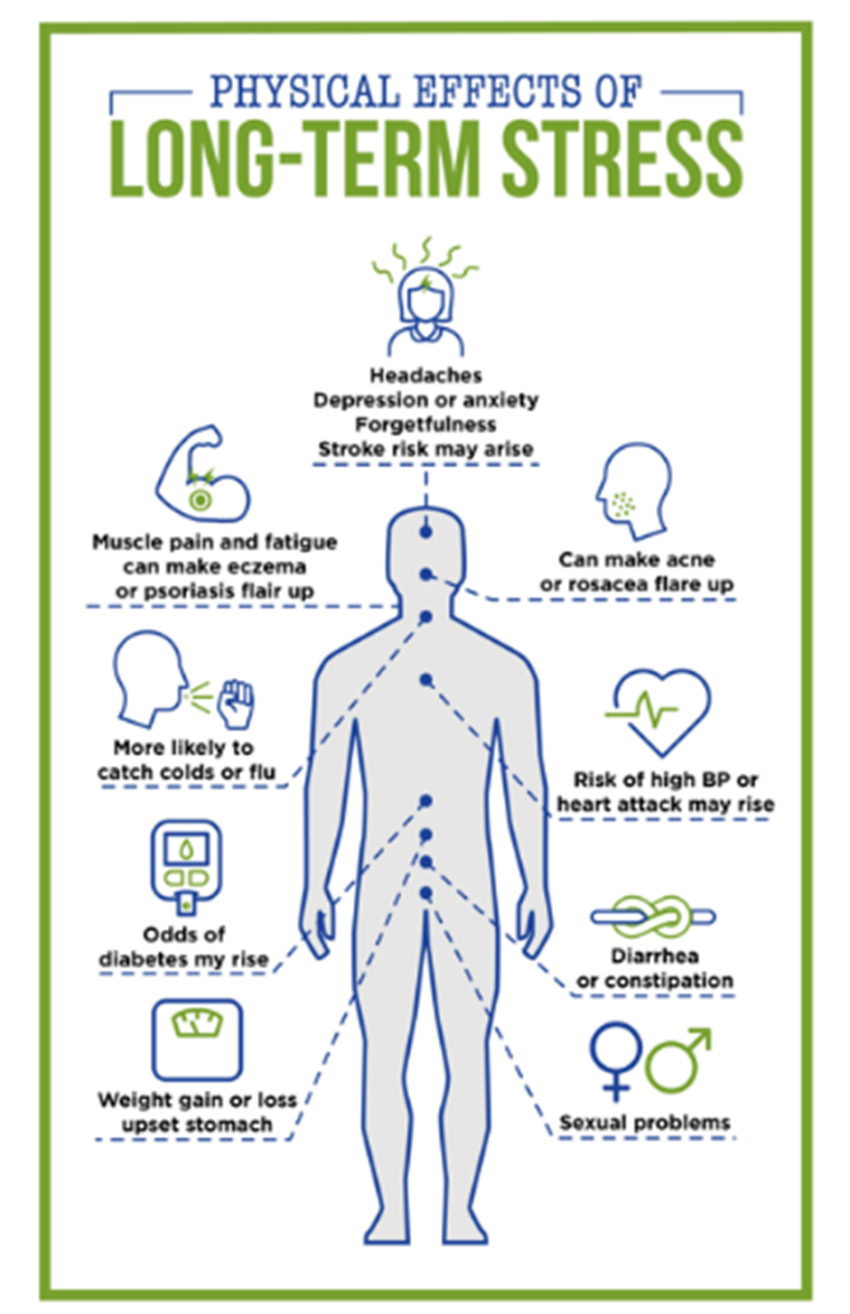Holly jolly and stressed out?

How many pages is your “to do” list? I love the Christmas season and all the joy it brings, but wow, the calendar sure is packed, and the list sure is long! Something’s got to give!
Not every family tradition has to be upheld. Not every invitation has to be accepted. Not every holiday treat or indulgence has to be enjoyed every single year.
Just think — if that to do list gets too long and the calendar gets too packed, then we are more likely to lose sight of the real reason we are celebrating. The greatest gift God could ever give — His own Son, so that we might have salvation!
What message does your calendar send to your family? Does the world outside see a difference in your priorities during this season? Don’t allow all the tinsel and festivities to cloud your vision and confuse your focus and stress you out!
Stressed out?
All the added commitments and extra activities can also mean additional stress. A moderate amount of stress is normal and even helpful in some ways, but prolonged high levels of stress can have very negative and even debilitating consequences.
The innate stress response is triggered by a release of hormones prompting us into survival mode, called fight or flight. During this time, we are assessing the situation and working out how to best survive.
This is normal, but imagine if your body stays in this mode for a prolonged period — a normal (and temporarily positive) response can then take a negative turn.
General adaptation syndrome (GAS) is the pattern of physical changes the body goes through after being exposed to stress.
Dr. Hans Selye first identified these stages as alarm, resistance and exhaustion. Understanding these different responses and how they relate to each other may help you cope with stress.
- Alarm — This occurs when we first perceive something as stressful, and then the body initiates the fight-or-flight response.
- Resistance — If the perceived stress continues, the body stays activated at a higher metabolic level to offset the persistent stress. The body cannot maintain this level indefinitely, and its resources will eventually run-out.
- Exhaustion — Prolonged exposure to the stressor will result in the depletion of the body’s resources, and the resulting wear and tear will suppress the immune system and cause bodily functions to deteriorate. This can lead to a variety of health issues and illnesses, including heart disease, digestive problems, depression and diabetes.
Physiological effects of stress on the body
Stress causes chemical changes in the body that can raise blood pressure, heart rate and blood sugar levels. It may also lead to feelings of frustration, anxiety, anger, or depression. Study the chart below to see all the negative physical effects that sustained elevated stress hormones can have on the body.

As you can see, the hormone changes that occur in response to unmanaged stress can cause headaches, appetite changes, muscle tension, depression, sleep problems, chronic fatigue, and deplete the immune system. If this continues long-term then these responses may result in significant weight gain, Metabolic Syndrome, and ultimately the development of heart disease or Type 2 Diabetes.
What causes you stress?
Managing stress is a huge component of your overall health and wellbeing.
Since we are all unique, it is important to reflect and be able to identify what may cause significant stress in your personal life.
A great first step in effective stress management is identifying the root causes of stress in your life. Start by writing down the things in your life that cause you to tense up or make you feel overwhelmed or anxious. It may be related to a certain relationship, a major life change, work, or even internal fears. Identifying the specific root causes of your stress is the first step. Once you have them written down, then you can begin to make a plan for how to reduce them.
Take a few minutes now to write down the top sources of stress in your life.
What does the Bible say we need to do?
Look up these verses and apply this strategy to the list you just wrote.
- Pray — Philippians 4:6-8; Psalm 34:4
- Prioritize — Matthew 6:33-34
- Re-focus — Romans 12:2
- Guard — Proverbs 4:23
- Trust God — Proverbs 3:5-6
- Give it to God — Matthew 11:28-30; Psalm 55:22
Tips to manage stress
Downtime is critical to many aspects of life, including better health. Being over-worked or over-committed can lead to stress, and chronic stress can literally make you sick.
We can’t avoid having some level of stress, but if you are “stressed-out” most of the time, it’s important to take action.
- Examine your calendar for items that you need to back out of or decline.
- Make a daily “to do” list and categorize it by level of priority.
- Decide now to say “no” next time you are asked to take on another activity.
- Prioritize sleep, healthy eating, and exercise as daily, non-negotiable commitments.
- Schedule in your daily Bible study and quiet time with the Lord. If there is not space in your schedule for this, then something else has to be let go!
- Manage your time so there is enough time for “free time!” Relaxation, intentional family time, and self-care are all important to keep your stress levels under control.
- Take a vote. Ask the whole family to pick which activities they definitely want to do and which ones can wait until next year.
No matter where you are starting, small steps in stress management will reap great rewards. Time management and stress management go hand in hand. So, while this particular time of year requires extra time and energy, it can be managed with some additional planning and prioritizing. That way you will head into this wonderful Christmas season feeling rejuvenated and able to spend time celebrating the true reason for the season — the birth of our Lord and Savior, Jesus Christ.
Merry Christmas!
For more health-related content, visit the healthy living section of our Medi-Share blog!
Megan Moore is a Registered Dietitian Nutritionist and Certified Diabetes Educator who has been in practice since 2004. She is currently the Corporate Dietitian at Medi-Share.



























